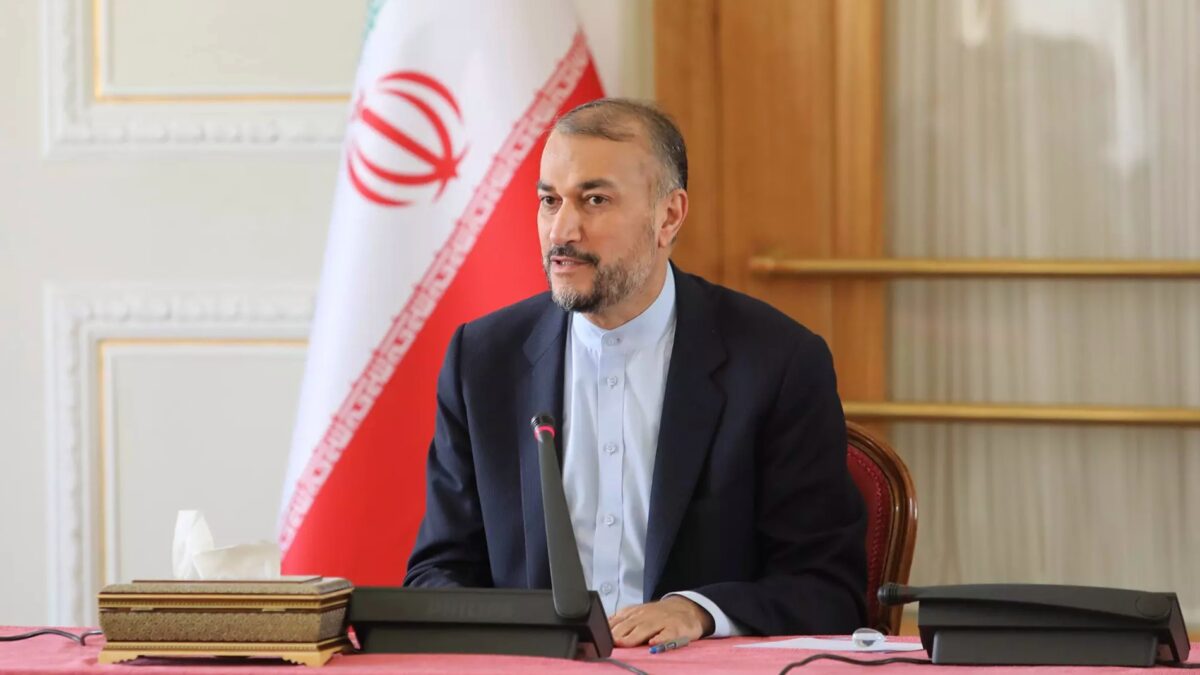Iran’s Foreign Minister Hossein Amir-Abdollahian said Thursday that Tehran has held talks with the Taliban authorities regarding the country’s right to water from the Helmand River and said in order to resolve the dispute, both sides need to work within the framework of the 1973 treaty.
Speaking with Iranian Foreign Ministry’s officials and diplomats, Amir-Abdollahian said: “We believe that the legal framework should be taken into account based on the 1351 (1973) [Helmand River Water] Treaty.”
He said he told the Taliban that the water dispute cannot be resolved through political statements and that it should be pursued within the framework of the treaty.
The treaty stipulates that the water amount provided can be less in some years due to drought or force majeure and that in the event of a dispute, the two countries should try bilateral diplomatic engagement to find a solution; make use of the good offices of a third party; and if neither step works, then the issue should be submitted to arbitration.
Amir-Abdollahian also said: “Occasional border skirmishes that have occurred on the Iran-Afghanistan border in the past few months are concerning.”
Referring to the Mazar-e-Sharif incident in 1998, in which several Iranian diplomats and a journalist were killed during the Taliban’s capture of the city, Amir-Abdollahian also stated: “We do not want the bitter incident of Mazar-e-Sharif to be repeated. We want to help facilitate peace and security in Afghanistan, and we have expectations from the current Afghan authorities side as well.”
He said however, that Tehran is not happy with the structure of the current government. “Afghanistan is an important issue for us. We are not satisfied that an inclusive government has not been formed in Afghanistan, and we have also conveyed this issue to the current Afghan authorities,” he said.
Amir-Abdollahian emphasized the need for the formation of an inclusive government in the country, stating that Tehran does not recognize the Taliban’s caretaker government. “Taliban is a part of Afghanistan’s reality, but not all of Afghanistan,” he said.
“We are unhappy with the deprivation of education for Afghan women and girls, and we consider this behavior contrary to the teachings of the Prophet of Islam,” he added.
This comes after Iranian President Ebrahim Raisi last week warned the Taliban of “consequences” if they failed to supply Iran with its rightful amount of water as per the treaty.
During his visit to Sistan and Baluchistan, Raisi said: “I want to convey to the authorities of Afghanistan that they should not consider my words as a normal matter, but take them very seriously. I warn the officials and authorities of Afghanistan to quickly address the rights of the people and the region of Sistan and Baluchistan.”
Raisi’s remarks prompted the Taliban’s acting foreign minister Amir Khan Muttaqi to respond by saying that Afghanistan remains the third most climate-vulnerable country in the world and is currently facing drought. He asked Iran to “calibrate its expectations based on the 1351 Treaty.”
Muttaqi added that the Kamal Khan Dam, on the Helmand River, does not have water, and the water rights issue between Afghanistan and Iran should be resolved through dialogue. He also said the level of the second dam on the river, the Kajaki Dam, has dropped by about half. The Taliban minister also urged Iranian officials not to politicize the issue of water and emphasized: “It is better to resolve such matters through understanding and dialogue.”





